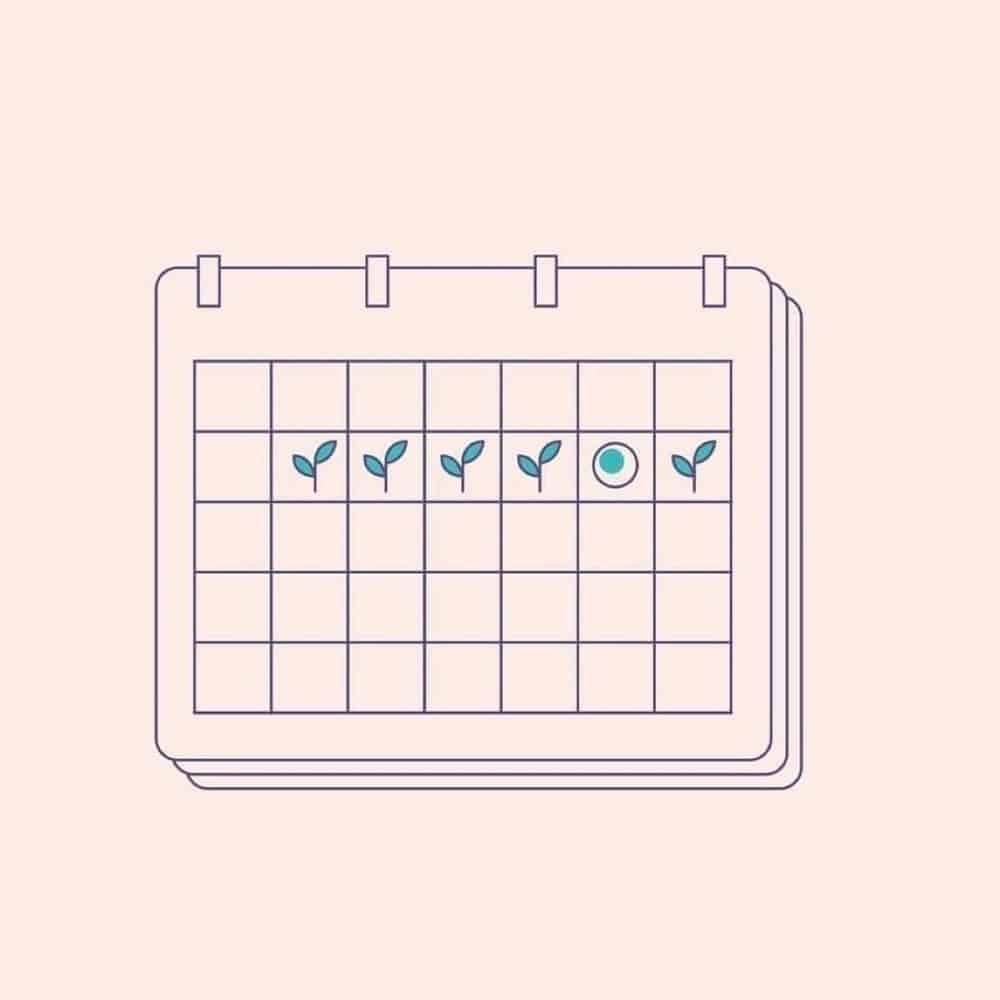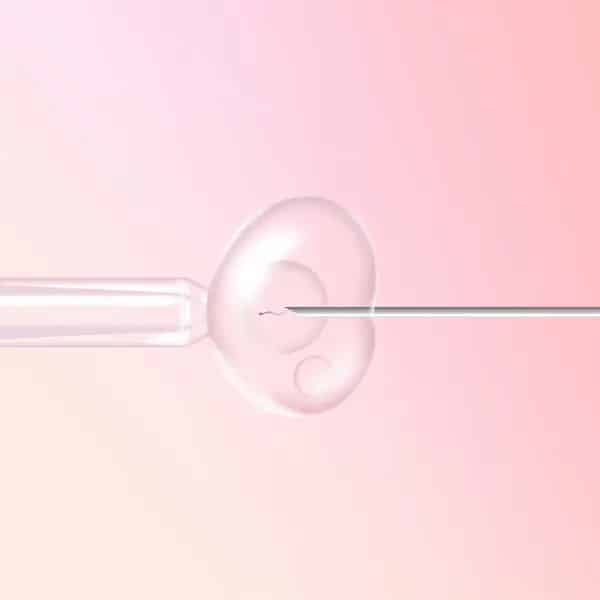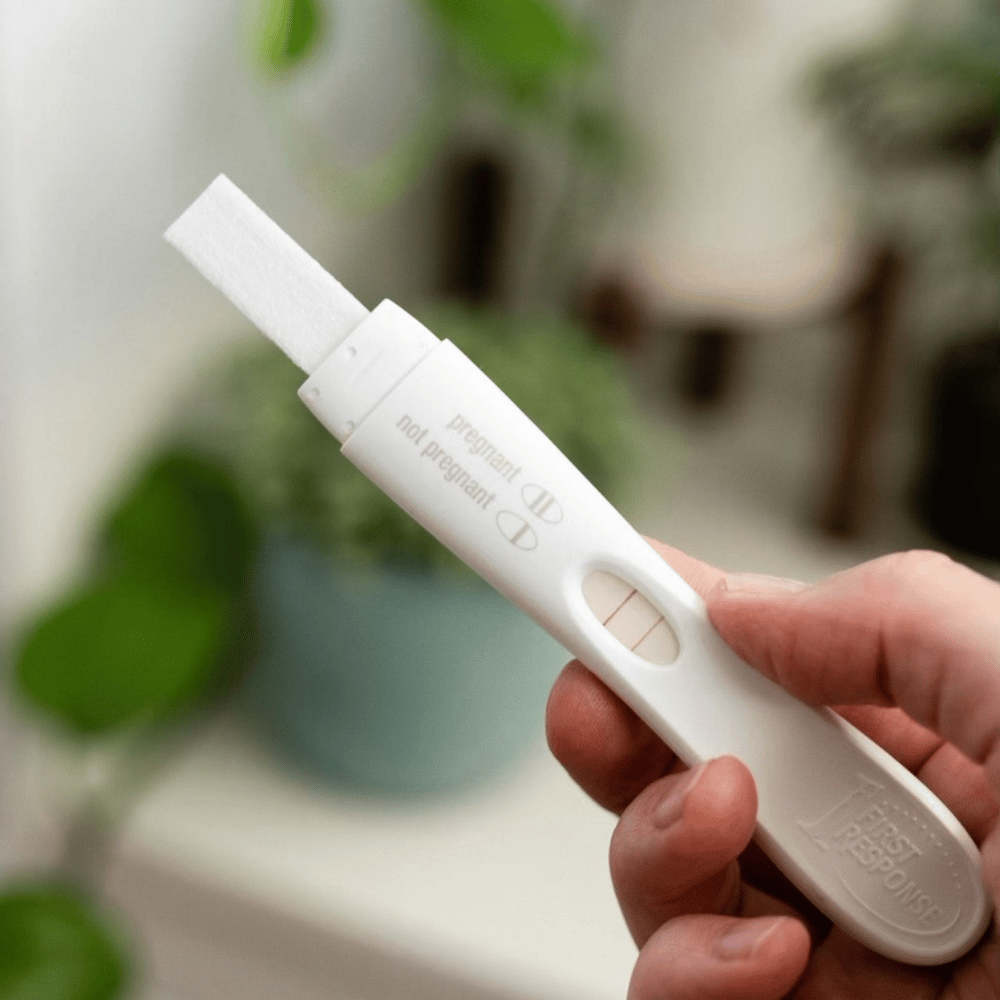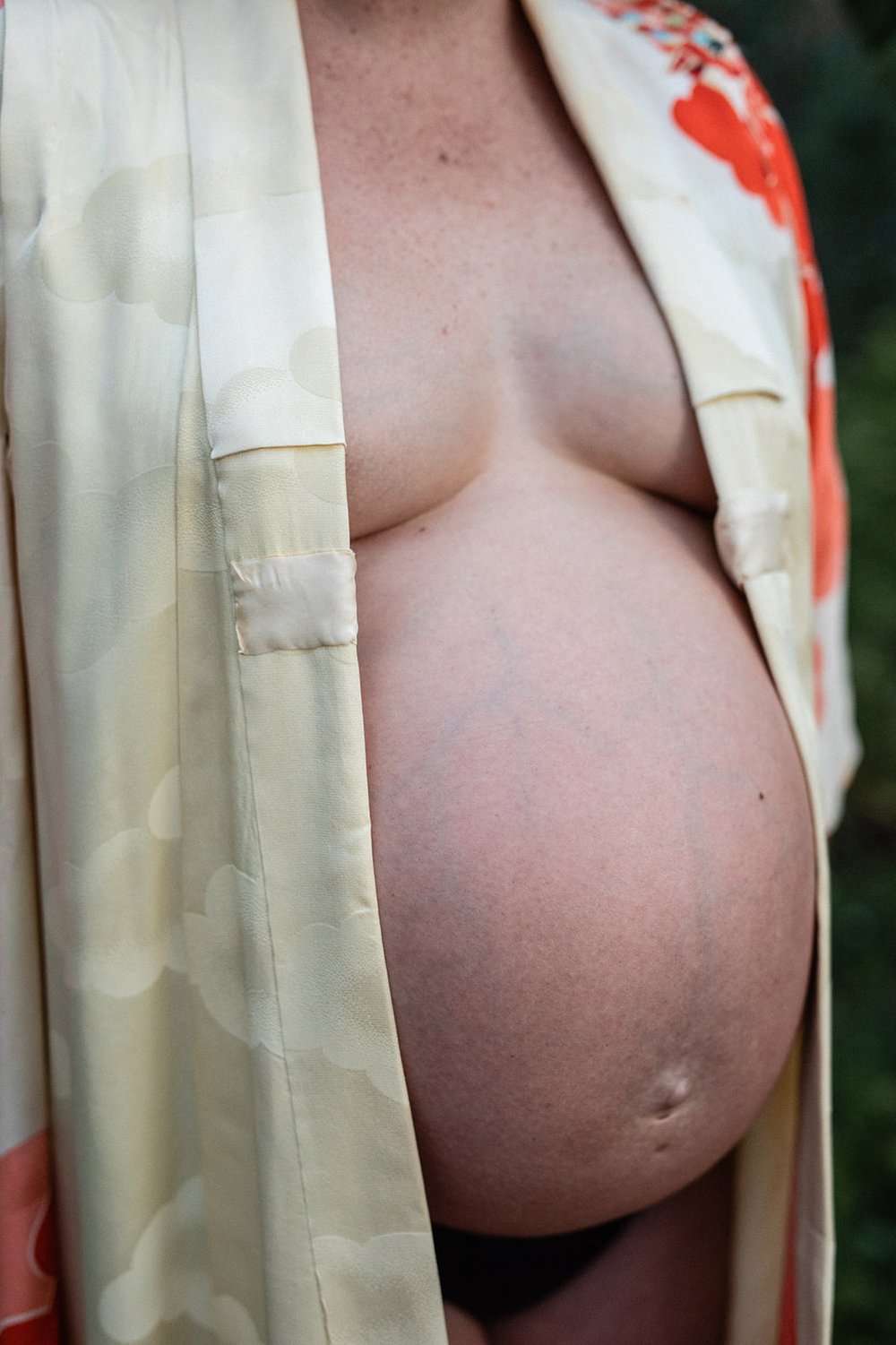In your menstrual cycle, you have a 3-5 day window Get to Know Your Menstrual Cycle
Get to Know Your Menstrual Cycle

Getting to know your menstrual cycle is one of the most empowering things you can do for your self-awareness and your conception journey.
There’s so much about our cycles that many of us aren’t taught in puberty or at school and it’s only later in life, when we start to consider our fertility or when we stop using hormonal contraception, that we have the inclination to pay attention – close attention – to our monthly cycle.
The truth is, so many of your experiences are dictated by your cycle. You go through four distinct hormonal phases from day one of menstruation and they dictate how your body is feeling physically, mentally and emotionally. They’re known as menstruation, pre-ovulation, post-ovulation and pre-menstruation.
There are two overarching phases in your menstrual cycle;
-
The follicular phase begins on day 1 (the first day of bleeding). Even though you’re menstruating, your follicles (eggs) are starting to mature within your ovaries.
-
The luteal phase begins once the egg has been released from the ovary and when your ovary creates a temporary gland to replace the released egg. It’s this gland that produces the hormone progesterone which can make you feel your very best. It gradually declines over the following weeks and your next period arrives once your progesterone and oestrogen levels have finished dropping.
Within your cycle, there are four phases that you can think of as seasons, each with its own characteristics and purposes.
Menstruation: in many ancient cultures, menstruation was a time of rest where they would retreat to a space dedicated to women who were bleeding or in postpartum. The key word here is retreat; this is the time of the month to rest, lay low, restore your energy and dream about all that’s to come. Your hormones flatline during this stage of your cycle so you feel flat, you crave comfort and your body is letting go and needs rest so you can be energetic and productive in the ovulatory phase of your cycle. Think of menstruation as your winter.
Pre-ovulation: this is the busy, doing phase where your oestrogen levels rise and you emerge from the dreamy, restful menstruation phase with a renewed sense of energy and motivation. It’s your spring, time to throw open the metaphorical windows, get out in the sunshine, move your body and mark some ticks on your to-do list.
Post-ovulation: oestrogen and testosterone are swirling around your body and once the egg is released, you receive a big hit of progesterone. You’ll be positively glowing, you’ll want to do all the things, and you’re feeling playful and abundant. It’s summer and you’re ready to give everything to those around you.
Pre-menstruation: your hormones are quickly receding, you’re starting to feel weary and there’s a need for you to retreat from the world and be a little quieter. This is autumn, and you need to take care of yourself. Surrender to this phase, you’re coming down from the high energy of summer and moving a little slower.
How do I know when I’m ovulating?
If you’re considering falling pregnant, it’s a really good idea to become aware of your fertile phase, the 3-5 day window of opportunity for you to conceive. Because every woman’s cycle is different there’s no particular day that you can mark ovulation. Yes, on a “normal” 28-day cycle, you could typically ovulate on day 14. But what is normal and typical with our bodies? We are all different and our menstrual cycles often reflect this. You may have a 28-day cycle but ovulate on day 19. The only way to really tell when you’re ovulating is to pay close attention to your cycle and learn your body’s cues. It’s time to tune in to the magic of your menstrual cycle!
There are a few things you can be aware of that will help you work out your fertile window:
Cervical Fluid / Mucous: Cervical fluid, vaginal discharge and vaginal mucous are all terms to describe the fluid that you’ll feel in your vagina and sometimes see on your underwear or when you wipe after urinating. This fluid tells you so much about your cycle and if you’re planning on conceiving soon, you’ll want to take note of it.
In the days after menstruation, you’ll feel quite dry. At this stage in your cycle, your cervix (the neck of your womb) is long and taught. As you journey towards ovulation, where your follicles are maturing and you produce more oestrogen, your cervix makes more fluid and you’ll notice it as slippery and stretchy like egg whites – the ideal consistency to carry sperm (without it the sperm would get exhausted and never make the long journey to the egg in the fallopian tube). Sperm can actually live for five days in this fluid, anticipating ovulation and the release of the egg that they’re racing to reach. There’s no set amount of fluid (again, we’re all different) but by paying attention to your discharge you’ll become are of this slippery, stretchy fluid and know that you’re pre-ovulation and your egg is about to be released.
Abdominal Twinge: In the moments before or during ovulation, you may feel a twinge, a dull ache or a pang in your lower abdomen. The German word mittelschmerz which translates to “middle pain” is the technical term because this pain occurs in the middle of your cycle. This is the egg releasing (amazing, isn’t it!) and the pain can be caused by two things: the follicle bursting or the release of fluid that the egg floats around in. If your pain is severe, it may be a symptom of endometriosis or ovarian cysts and, if so, it’s a great idea to chat to your GP about your experience.
Basal Body Temperature (BBT): Many natural conception methods encourage you to take your temperature first thing in the morning (under the tongue) and write down your reading – this is your basal body temperature, the temperature of your body before you do any physical activity. If you want to know when you’re most fertile, your BBT will tell you. Generally speaking, once you have ovulated the production of progesterone will increase your BBT by an average of 0.4 degrees Celsius. If you record your temperature over a few months you’ll be able to calculate the average day before the temperature increase (which is when you ovulate).
Categories
Related Products
-
Birth Meditations
$49.00Narrated by Sophie Walker, these soothing and informative meditations help you feel supported and confident around birth.
Get your copy of our Perineal Massage Guide in your inbox
Keep Reading
We think you might enjoy these articles
@AustralianBirthStories
Follow along with us
@AustralianBirthStories
Follow along with us
@AustralianBirthStories
Follow along with us
@AustralianBirthStories
Follow along with us
@AustralianBirthStories
Follow along with us
@AustralianBirthStories
Follow along with us
@AustralianBirthStories
Follow along with us
@AustralianBirthStories
Follow along with us
@AustralianBirthStories
Follow along with us
@AustralianBirthStories
Follow along with us
@AustralianBirthStories
Follow along with us
@AustralianBirthStories
Follow along with us




